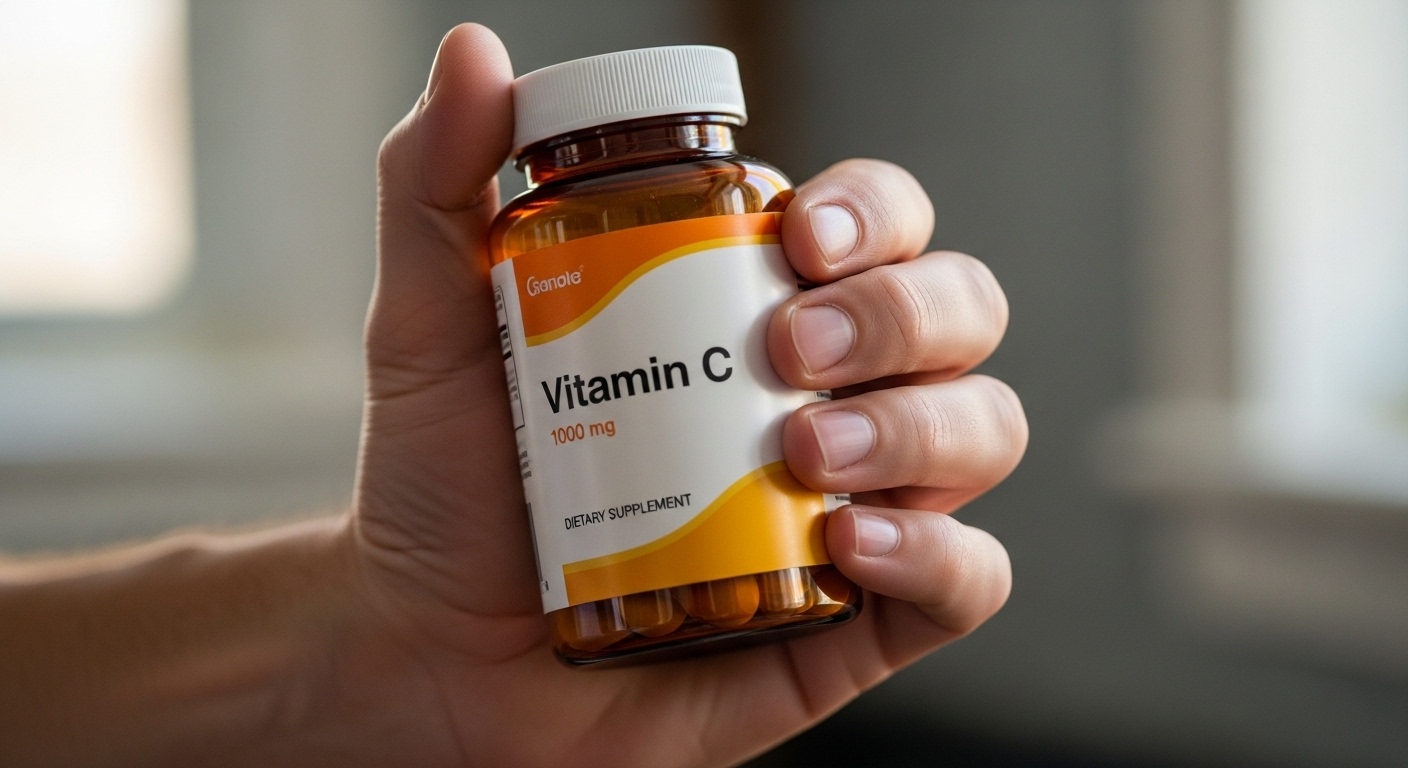Dr. Kumar’s Take
This study shows that a simple daily dose of vitamin C can lower uric acid in the blood, which is one of the main drivers of gout. The reduction was modest but consistent across different groups of people. While vitamin C alone may not replace prescription gout medications, it could be an inexpensive and safe addition to a prevention strategy. Patients at risk for gout or kidney stones may benefit from adding more vitamin C through diet or supplements.
Key Takeaways
✔ Vitamin C at 500 mg/day lowered serum uric acid by about 0.5 mg/dL compared with placebo.
✔ The effect was consistent across age, sex, race, BMI, and health conditions.
✔ Participants with high uric acid at baseline saw even larger drops (up to 1.5 mg/dL).
✔ Vitamin C also improved kidney filtration (estimated GFR).
✔ No major side effects were reported.
Actionable Tip
If you are at risk of gout or have borderline high uric acid, talk to your doctor about adding 500 mg of vitamin C per day, either through diet or a supplement. Pairing this with lifestyle changes like reducing sugary drinks and alcohol could provide extra protection.
Study Summary
This randomized, double-blind, placebo-controlled trial followed 184 nonsmoking adults for 2 months. Participants were randomly assigned to receive either 500 mg of vitamin C per day or a placebo. At the end of the trial, those who took vitamin C showed a clear reduction in blood uric acid levels, while the placebo group showed no meaningful change. The benefits were seen across nearly every subgroup, including men, women, older adults, and those with chronic illnesses.
Study Design
- Population: 184 adult nonsmokers from Baltimore, Maryland.
- Intervention: 500 mg/day vitamin C supplement for 2 months.
- Control: Placebo pills.
- Exclusions: Heavy alcohol use, smoking, or regular supplement use before the trial.
- Endpoints: Changes in serum uric acid, ascorbic acid, and kidney filtration (eGFR).
Results
- Uric acid: Decreased by 0.5 mg/dL on average in the vitamin C group; placebo showed no reduction.
- High baseline uric acid (>7 mg/dL): Decreased by 1.5 mg/dL with vitamin C.
- Kidney function (eGFR): Improved modestly in the vitamin C group.
- Safety: No serious side effects reported; adherence was high (>90%).
How Vitamin C Helps Lower Uric Acid
Vitamin C may reduce uric acid in two ways:
- Increased kidney filtration: Vitamin C improves microvascular health, allowing the kidneys to filter more uric acid.
- Competition for reabsorption: Vitamin C and uric acid use similar transporters in the kidney. When vitamin C is present in higher amounts, less uric acid gets reabsorbed, leading to greater excretion.
These mechanisms align with the consistent uric acid reductions seen in the trial.
Strengths and Limitations
Strengths:
- Randomized, placebo-controlled design.
- High adherence and completion rates.
- Diverse study population (men and women, 50% African American).
Limitations:
- Short duration (2 months).
- Only one dosage level tested (500 mg/day).
- Did not measure long-term outcomes like gout flare frequency.
Related Studies and Research
Cherries and Gout Prevention – Highlights how cherry intake can lower risk of recurrent gout flares.
Coffee, Uric Acid, and Gout Risk – Looks at how coffee may impact uric acid metabolism and gout risk.
Diet and Gout Risk: NEJM Study – Large cohort study evaluating how diet impacts gout incidence.
Podcast: How to Make Gout Disappear from Your Life – A comprehensive look at modern and ancient gout science—and how to beat it.
Frequently Asked Questions
How much vitamin C is needed to lower uric acid?
This study found benefits at 500 mg/day, which is higher than the daily recommended intake but within the safe range for most adults.
Can vitamin C replace gout medications?
No. While vitamin C can help lower uric acid modestly, prescription medications like allopurinol are far more effective for people with frequent gout flares.
Does vitamin C prevent kidney stones?
High uric acid can contribute to kidney stones. By lowering uric acid, vitamin C may help, though high doses can sometimes increase oxalate stones.
Should everyone with high uric acid take vitamin C?
Vitmain C is an essential antioxidant that your body can not make. All humans need Vitamin C at baseline, but if you have high uric acid it can be especially helpful.
Bottom Line
Vitamin C is a safe, inexpensive supplement that lowered uric acid levels in this well-designed clinical trial. While it should not replace standard gout treatments, it may be a useful tool for prevention, particularly in those with mild hyperuricemia.


